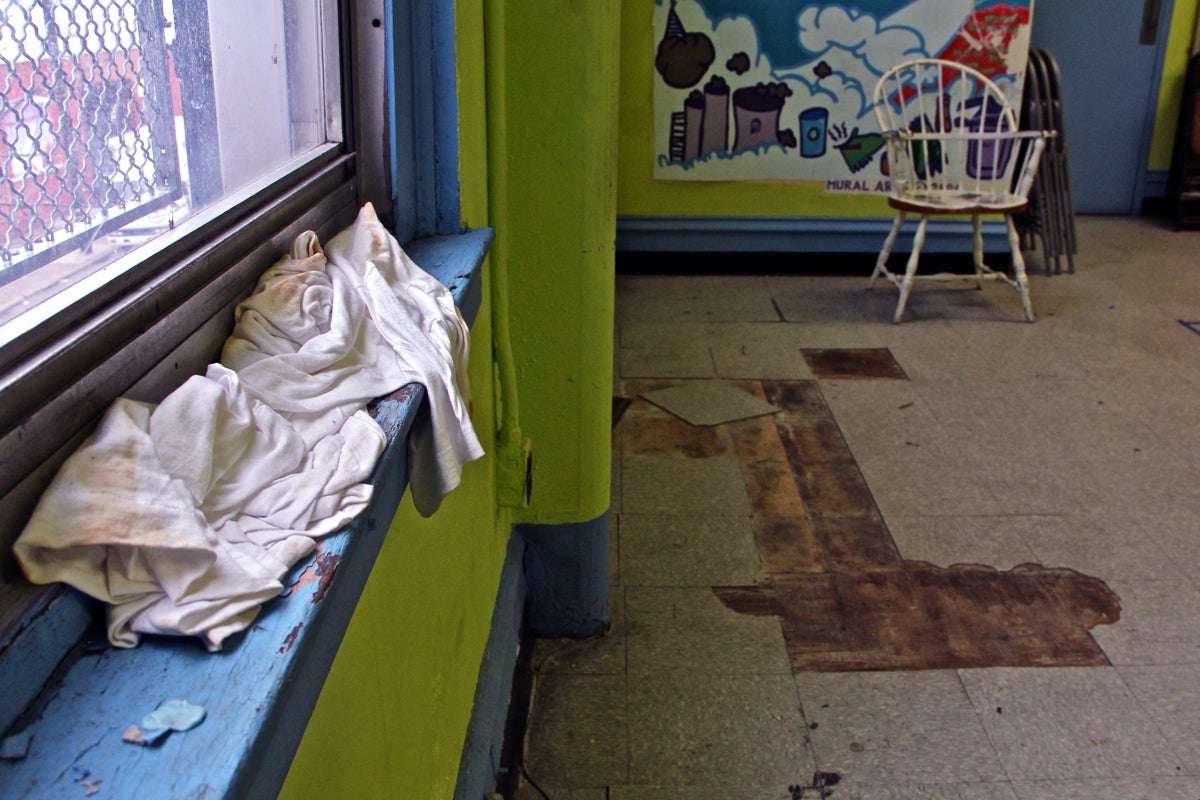City: ‘Too soon’ to say if soda tax shortfall will hit parks & rec makeover

There will be no Rebuild without the soda tax. That’s been the message coming from Mayor Jim Kenney over the last several months — a warning that the ongoing legal fight around the 1.5 cents-an-ounce tax on sugary beverages, now before the Pennsylvania Supreme Court, could scuttle his half-billion-dollar effort to improve the city’s public parks, rec centers, playgrounds and libraries.
For more than a year, Rebuild has hung in suspended animation on account of a lawsuit backed by the beverage industry that’s challenging the constitutionality of the tax in court. City Hall has refused to issue the anticipated $300 million in bonds for Rebuild until (and if) the court upholds the constitutionality of the citywide levy, the financial lynchpin of the ambitious effort to better public spaces in neighborhoods that haven’t experienced much public investment in decades.
The latest blow to the program came last week when Kenney announced that in its first calendar year, 2017, the soda tax raised $79 million, about $13 million less than the anticipated $92 million haul. As a result, the administration lowered its estimated annual intake from the tax by 15 percent, a reduction that will trickle down to the major programs funded by the new tax revenue. There will be fewer pre-K seats and community schools. The Inquirer reported that spending on Rebuild, too, would be scaled back. But Rebuild executive director Nicole Westerman says that any report of reduction in spending is premature. “It’s too early to say how the revised projections will impact the total scale of Rebuild,” Westerman said in a statement. That’s not to say the revised revenue estimates won’t have an impact on Rebuild’s financials. Roughly 12 percent of the city’s soda tax revenue goes toward paying down the principal and debt service on future bonds that will fund the majority of Rebuild. Because of the lowered estimates, the city will now likely borrow less money, somewhere shy of the $300 million in bonds that’s been anticipated.
How that reduced borrowing will affect Rebuild in the long run remains to be seen. The Kenney administration says that the cash could be made up in grants, or by other means. “It’s too soon to say, we don’t yet know exactly how the Rebuild budget will be affected,” Westerman said via email. (According to a report from City & State, the mayor’s office is stockpiling millions in case of future shortfalls from the levy.)
In the short term, the initiative won’t feel any impacts from soda tax shortfall, Westerman said. For now, Rebuild will continue to move forward with the limited funds it has on hand: $4.8 million from the William Penn Foundation, $8 million from the capital budget, and potentially, other forthcoming grants. “We still plan to start on sites with money from the City’s Capital budget and grant funds, regardless of how much we’ll be borrowing,” Westerman said.
But significant movement can’t be made without City Council approval of the 23 playgrounds, 19 recreation centers, seven recreation center libraries, seven parks and five libraries selected for the first round of Rebuild investment. And when that approval happens is, like the soda tax lawsuit’s next court date, out of the administration’s control. The council, which has consistently voiced concerns about ensuring the sites are chosen through a transparent process that reflects the input of their constituents, hasn’t yet scheduled its hearing on the city plan.
“Our preference would be for a hearing to be scheduled before the end of this month,” said Westerman.
To soda tax opponents, the political delays are another sign of the administration’s weak hand. Kenney has frequently blamed the beverage industry for slowing Rebuild and other initiatives, such as universal pre-K, funded by the sugary drink levy. “He’s trying to turn us into scapegoat for his failed policies. It’s not our fault that his administration can’t do math,” said Anthony Campisi, spokesman for Ax the Philly Bev Coalition, a lobbying coalition funded by the American Beverage Association and other industry groups. “The reason the mayor has announced the city is going to be cutting the number of pre-K seats is that he’s relied on a tax that’s bad public policy.”
From a legal perspective, there’s little precedent to know which way the court will sway. “As a legal matter, I think that the case could go either way,” said Dr. David Dana, a law professor at Northwestern University who’s written about the legality of soda taxes across the country. “It’ll be a big precedent one way or the other, what Pennsylvania does.”
And it will be a surprise when they do it. Kenney has said he is confident the case will wrap this year but that leaves a nine month window. In the meantime, Westerman is looking to Council to keep the momentum going. “We’ve made sure that City Council understands that we can start on projects even while the litigation is taking place,” she said. “So we’re hopeful that they are just as motivated as we are to pass the legislation and get projects started.”
WHYY is your source for fact-based, in-depth journalism and information. As a nonprofit organization, we rely on financial support from readers like you. Please give today.



